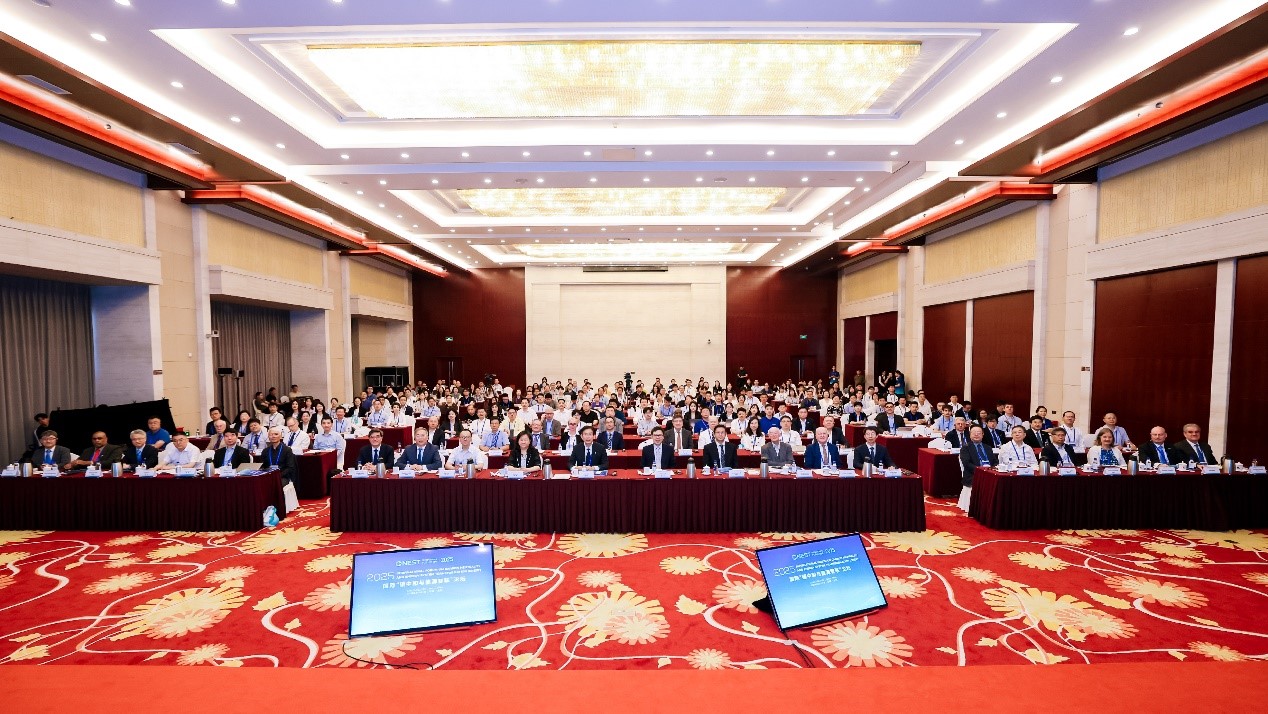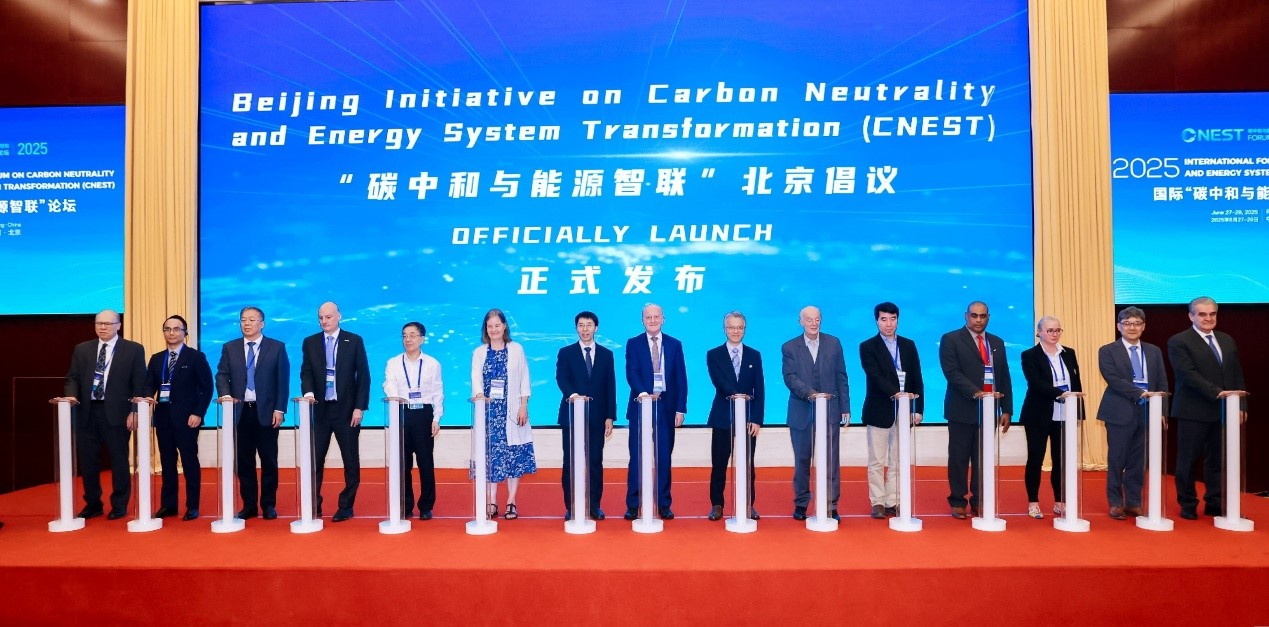The 2025 International Forum on Carbon Neutrality and Energy System Transformation (CNEST) was held in Beijing's Changping district over the weekend.

The forum, hosted by Tsinghua University and organized by the Tsinghua Institute for Carbon Neutrality, marked the inaugural international gathering under the CNEST multilateral collaboration program.
The event brought together over 400 participants from 19 countries, including representatives from universities, research institutions, enterprises, and international organizations. Experts jointly launched the CNEST Beijing Initiative during the opening ceremony, calling for strengthened global collaboration to develop a new paradigm for future energy systems and accelerate progress towards carbon neutrality.

Jiang Peixue, vice president of Tsinghua University and head of the CNEST program, delivered a keynote speech. He highlighted the complexity of designing a new energy system aligned with carbon neutrality goals and introduced CNEST's vision of an integrated, optimized system that supports low-cost decarbonization and sustainable development.
Youth representatives from China, Germany, India and Spain jointly read out the text of the CNEST Beijing Initiative, which advocates building a global collaborative network to promote energy system transformation, advancing scientific and technological innovation to lead energy transformation, cultivating an innovation ecosystem to accelerate implementation, and synthesizing global knowledge to empower equitable development.

The forum also saw the launch of Technology Review for Carbon Neutrality, co-edited by Professor Michael McElroy of Harvard and Professor He Kebin, dean of the Tsinghua Institute for Carbon Neutrality. The journal serves as an open, neutral, and thoughtful global platform of communication on CNEST.


 Share:
Share: 




 京公網(wǎng)安備 11010802027341號
京公網(wǎng)安備 11010802027341號 主站蜘蛛池模板:
西华县|
荔浦县|
阳原县|
伊金霍洛旗|
北辰区|
郁南县|
长春市|
县级市|
昆明市|
新密市|
阳江市|
沁阳市|
曲松县|
弥渡县|
平湖市|
南投市|
梁河县|
依兰县|
阳山县|
库车县|
光泽县|
孟州市|
黄大仙区|
原平市|
海门市|
乌海市|
横峰县|
晋江市|
奉新县|
宁城县|
肥乡县|
聂荣县|
晋宁县|
新郑市|
桃园县|
安溪县|
湾仔区|
商河县|
马尔康县|
广灵县|
寿宁县|
主站蜘蛛池模板:
西华县|
荔浦县|
阳原县|
伊金霍洛旗|
北辰区|
郁南县|
长春市|
县级市|
昆明市|
新密市|
阳江市|
沁阳市|
曲松县|
弥渡县|
平湖市|
南投市|
梁河县|
依兰县|
阳山县|
库车县|
光泽县|
孟州市|
黄大仙区|
原平市|
海门市|
乌海市|
横峰县|
晋江市|
奉新县|
宁城县|
肥乡县|
聂荣县|
晋宁县|
新郑市|
桃园县|
安溪县|
湾仔区|
商河县|
马尔康县|
广灵县|
寿宁县|